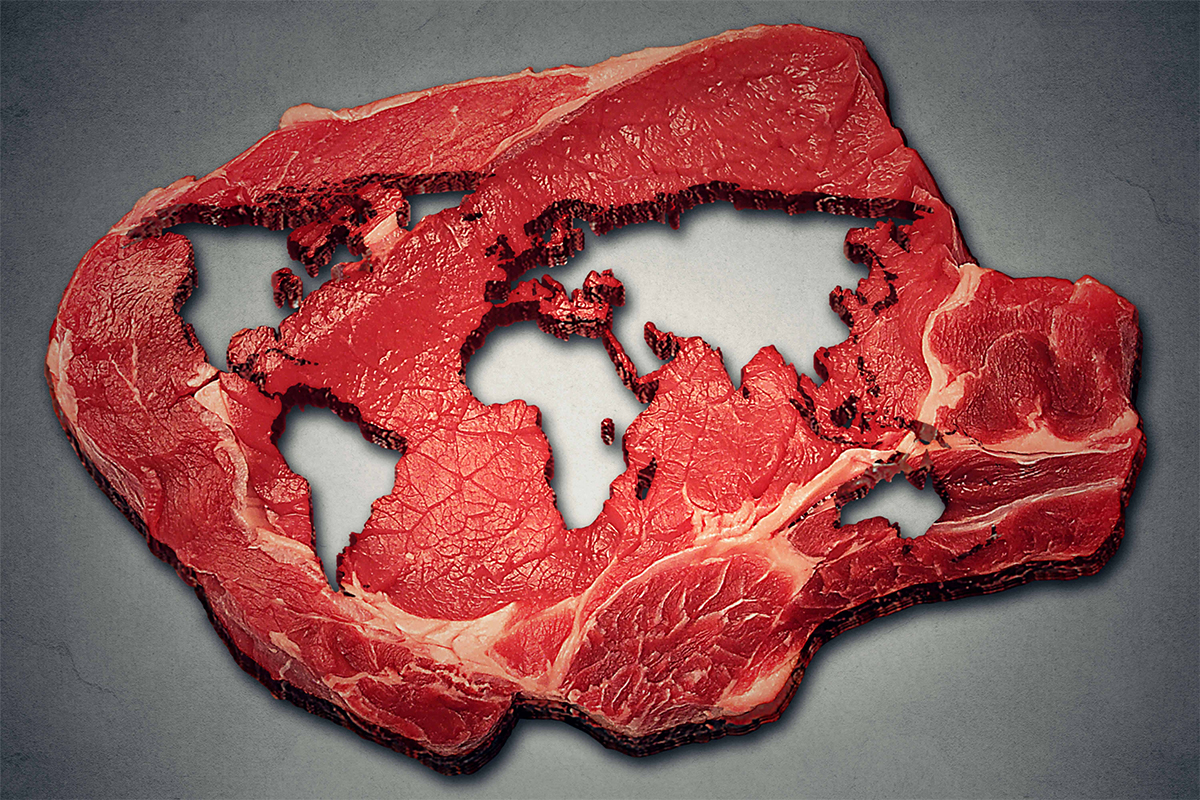The Barbeque Chain Bankruptcy
Dickey’s Barbeque Pit in Michigan is the latest casualty in the barbeque chain bankruptcies in Michigan. The chain which sold delicious slow-cooked meat over the counter was a huge hit with meat lovers. This bankruptcy comes in the wake of a new trend in the restaurant industry affecting the Midwest.
Prior to this bankruptcy filing, other restaurant chains like Arby’s, Wendy’s, Subway, and Popeyes had met the same fate. Rising costs are a major factor that can drive more restaurants out of business. However, there are other reasons for each bankruptcy. In this article, we will take a deep dive into the factors that have brought about this downfall.
What Went Wrong With Dickey's Barbeque Pit?
Recently, Dickey’s Barbecue Pit, which is a franchise operated by Smokin’ Dutchman Holdings (SDH) filed for Chapter 11 bankruptcy. The company managed four locations across West Michigan in Holland, Jenison, Kalamazoo, and Rockford. SDH was in huge debt because of the financial demands of the parent company. Inc. The franchise struggled to keep pace with the rising costs associated with labor and ingredients and maintain its business in a competitive market.
One of the key challenges for Dickey’s was its slow adaptation to modern restaurant trends. While many competitors embraced online ordering, delivery partnerships, and innovative marketing strategies, Dickey’s franchise in Michigan relied heavily on traditional business models. This hesitation to innovate left them vulnerable as consumers increasingly sought convenience and tech-driven solutions.

Economic Pressures
Even though the specific cause of each bankruptcy is different, the one factor all bankruptcies share in common is economic pressure. The expenses of hiring staff to purchase raw materials are increasing at a steady rate. The companies are also finding it hard to raise capital to expand their business. Another factor is the increasing cost at which loans are being repaid. This leaves the chain with little or no profits. [1].
Challenges of COVID-19
Social distancing and lockdowns also impacted sales and prompted many businesses to offer take-out or delivery models. This posed a unique challenge to the barbeque chain. Barbeque is best served fresh from the smoker or grill. It is not well suited for take-out or delivery as the meat does not taste as good if not eaten right away.
The unprecedented challenges of COVID-19 had a negative impact on Dickey’s Barbeque Pit, which struggled amid lockdowns.
Post-Pandemic Meat Supply
As barbeque restaurants rely on meat as their main offering, they were hit hard by supply chain issues following the pandemic. Many meat processing plants across the US had to stop or reduce their operations. As the supply of meat decreased, the price skyrocketed. The barbeque chain found it hard to maintain stable costs.
The franchises were faced with two options; either absorb the costs decreasing their profit margin or pass it on to the customer and risk losing their customer base. For a business that was already balancing on the edge, these price hikes were the tipping point.

Labor Shortages
Labor shortages had a deep impact on the barbeque industry, which relies on skilled employees. Behind every successful barbeque restaurant are pitmasters who are proficient at smoking and grilling meats and are experts at the slow-cooking techniques that give barbeque its distinctive flavor. Preparing a barbeque is a slow process that takes hours and requires precise techniques. Labor shortages during the pandemic led to operational problems for barbeque chains. When the labor shortage struck, this barbeque chain had trouble offering the same quality in their signature dishes.
Barbeque Chain Market Saturation
Barbeque chains have expanded greatly in the past two decades. As a result, the market in Michigan became saturated, resulting in strong competition. Dickey’s Barbeque Pit expanded its business by franchising and acquiring 650 locations in 44 states across the US.
The franchising requirements of Dickey’s Barbeque Pit are cited as a cause of bankruptcy of the Michigan franchises. Smokin’ Dutchman Holdings, which owns four locations in Michigan, filed for bankruptcy after facing a debt of $2.1 million. The franchisee has cited unreasonable demands on its finances from Dickey’s barbeque pit. [2]

Michigan-Specific Challenges
Michigan’s economy has long been tied to the automotive industry, and economic downturns in this sector often have ripple effects across the state’s economy. When major automotive manufacturers experienced layoffs or slowdowns, disposable income in the state decreased, directly impacting businesses like restaurants that rely on consumer spending.
Additionally, Michigan has a relatively short summer season, which can be a prime time for barbeque dining. The cold winters limit outdoor dining opportunities, which are often a key draw for barbeque restaurants that pride themselves on outdoor smoking and grilling. The seasonal nature of the business meant that the chain had to do much of its business during a few short months, making it even more difficult to sustain year-round profitability.
The Role of Leadership and Management
Leadership and management decisions played a role in the downfall of the barbeque chain. Dickey’s Barbeque Pit expanded too quickly, taking on more debt than they could service. When the economy turned or business slowed, they found themselves unable to keep up with their financial obligations.

Lessons and Future Outlook For Michigan
The bankruptcies of Dickey’s Barbeque Pit in Michigan serve as a cautionary tale for other restaurants and businesses. To survive in today’s competitive and ever-changing market, it is essential to remain agile, adapt to consumer trends, and embrace innovation. Whether through menu diversification, investment in technology, or strategic financial management, businesses must continuously evolve to meet their customers’ needs and the market’s demands.
Looking forward, while the barbeque niche may continue to face challenges, it is unlikely to disappear entirely. Barbeque remains deeply ingrained in American culture, and there will always be demand for high-quality barbeque experiences. However, the chains that survive and thrive will be those that can successfully navigate the economic, operational, and cultural challenges that have led to the demise of so many of their competitors.
If you find yourself facing a business bankruptcy in Michigan, contact Frego & Associates today.
FAQs
Dickey’s Barbecue Pit is the latest barbeque chain to file for bankruptcy in Michigan.
Four locations in Holland, Jenison, Kalamazoo, and Rockford were affected by the bankruptcy filing.
The franchisee faced $2.1 million in debt due to high costs and unreasonable franchising demands.
Yes, Michigan’s economy and short summer season made it harder for the chain to maintain year-round profitability.
Sources:
[1] Canham-Clyne, A. (2024, January 30). Cost pressures may drive restaurant franchisee bankruptcies in 2024. Restaurant Dive. https://www.restaurantdive.com/news/labor-shortage-costs-drive-restaurant-franchisee-bankruptcies-in-2024/705991/
[2] McNeill, T. (2024, September 16). One Of Michigan’s Premier BBQs Has Declared Bankruptcy. 97.9 WGRD. https://wgrd.com/dickeys-bbq-pit-bankruptcy-west-michigan/




